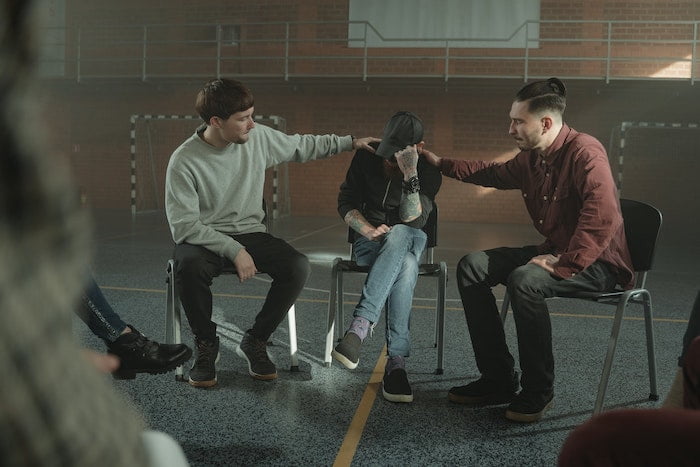Living with an addiction for the majority becomes a very isolating experience. In the depths of the problem, you can feel blind and as if there’s no way out. It can be hard to understand that another way of living is achievable.
When life becomes focused on the next drink or drug fix, it has shrunk. This is why opening up your mind to the possibility of recovery is a massive step. When this moment arrives sit with the feeling of possibility and concentrate on all the things your life will bring without the substance ruling you.
People entering rehab want to heal, they want their physical and mental health back, their relationships back on track and their lifestyles to be positive. Each person has their drive and motives. What’s important to remember is that addiction needs treatment.
To be able to stop using alcohol and drugs, doctors, psychotherapists and drug and alcohol workers are essential. There aren’t many people who understand the gravity and levels of addiction, but these specialists do. In recovery, you’ll also meet other people in your situation who become great sources of positive support.
To begin a life of recovery in the Maldon area, find out what your treatment options are by calling OK Rehab on 0800 326 5559.
What Do You Gain By Accepting And Participating Fully In Therapy?

Some people worry about beginning therapy. People with addictions can be quite guarded with what they share, do not want to talk, or might have become accustomed to repeating a story which is easy to say and easy to share with others.
The truth is, for recovery to take place; the causes of the addiction have to be addressed. Some people might have a very clear cause that created the issue, but often there is a complex weave of circumstances around the addiction.
World expert on addiction, Gabor Maté, states that addiction stems from trauma. Understandably so, where this is the case, it can be very uncomfortable for people to share their thoughts and feelings.
Rest assured that psychotherapists are experts at what they do. And those who treat people with addiction are familiar with how conversation and breakthroughs happen. You will be invited to share difficult thoughts but only when this is appropriate. There is a lot of work done, too, around protecting you emotionally.
When you’re guided by a psychotherapist you’re able to address the causes and triggers of addiction. You’ll be shown techniques that you can use that will allow you to reframe your thoughts.
Psychotherapy provides a safe space where deep healing takes place. This will support you to recover and create the foundation for an abstinent lifestyle.
What Therapies Are There At Rehab?

Therapies tend to fall into one of two categories, psychotherapies and alternative therapies.
The types of psychotherapy common at rehab include:
- Cognitive behavioural therapy: This is where you learn how to identify your thoughts, reframe them, and then change your behaviour.
- Dialectical behavioural therapy: This is especially useful for people who struggle with deep emotional trauma.
- Motivational interviewing: This is a type of talking therapy where counsellors or therapists lead you in conversation to help you to establish your values, beliefs, goals, and self-confidence.
The alternative therapies at rehab clinics include:
- Art therapy
- Music therapy
- Equine therapy
- Mindfulness
You will also take part in therapeutic activities such as yoga, reiki, and acupuncture.
What Do Group Sessions Bring To Your Rehabilitation Programme?

One major aspect that supports people to recover from addiction for a sustainable amount of time is human connection. When people have positive relationships where they can open up honestly, share, and be supported, great healing occurs.
As a resident at a rehab clinic, you’ll begin to learn the structure of groups that have a 12 Step format as well as others, such as SMART groups. These groups allow you to draw on the experiences of others and this creates a powerful place of self-understanding.
Likely, the aftercare plan you receive at the end of your residential stay will include accessing group sessions local to Maldon.
How Do I Tell The People I Love That I Have A Problem And Need Help?

It can feel like a strange place to be in, to be ready to accept treatment. Some people may have very strained relationships with the people around them. This might mean that people you love don’t take you seriously when you say you want to quit or they might now realise that there is a serious problem.
The most important thing to do if people doubt you is to focus on finding unbiased advice from people who can support you.
OK, Rehab has a team of advisors that can speak with you about this.
For those who want to tell their family that they have a problem, you might be surprised that family members already know. Alternatively, they might be sad, angry, or worried to find this out. Either way, it’s best to reassure them that you want to begin a rehab programme and would find their support helpful.
It’s always best, to be honest and to try to speak clearly about what your recovery goals are. Family and friend discussions can become quite emotional. In this instance, you can remind people that therapies are available at rehab to work on these relationships.
What Do You Do Now To Go To Rehab?

The easiest thing to do is speak with OK Rehab. You’ll then gain the following:
- A conversation with a professional who understands the nature of addiction.
- A free pre-assessment that establishes your circumstances.
- A comprehensive understanding of the rehab programmes in Maldon and further afield.
- A referral to rehab should this be what you’re looking for.
- Emotional and practical support up to your admission date.
With the support of our staff, you’re able to focus on mentally preparing for your next step towards recovery.
Call us on 0800 326 5559 to begin a life of sobriety.





